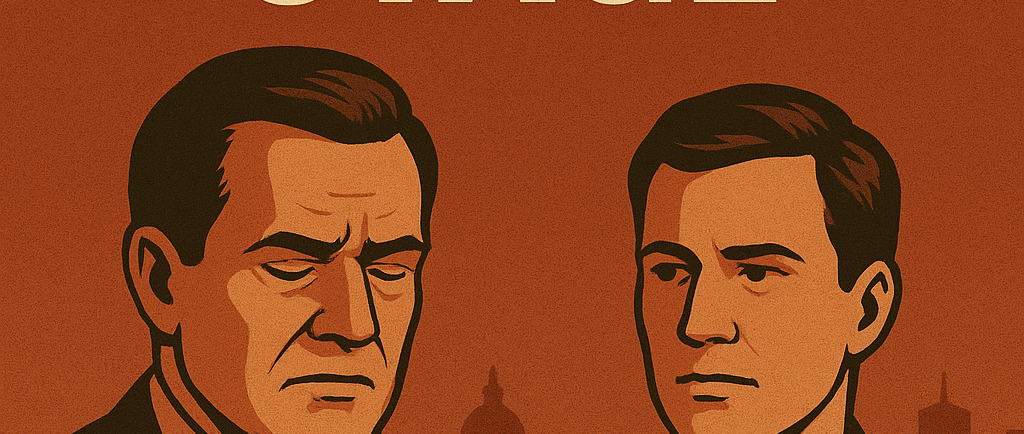Episode 3: The Human Stage
Blog post description.


We’ve reached the halfway point of the first season of Politics’ Worst Impulses, and the story only continues to deepen. With every episode, the characters grow richer, and the themes sharper. Episode Three shifts our focus to Vice President Bill Neilson and asks us to consider what it means for leaders to be human.
Summary
President William Sanchez cannot seek a third term because of the 22nd Amendment. On top of that, his health is failing—he admits to having suffered a heart attack. While Sanchez is still in office, this episode is not about him. It’s about his Vice President, Bill Neilson, the man Sanchez insists is ready to take the reins of power.
We learn about Neilson’s past as governor of Louisiana, where he instituted chain gang laws that tragically led to the death of a fifteen-year-old boy, Alberto Marcela. Neilson later came to regret this decision and changed the laws, but the stain remains. Meanwhile, Cain—our lurking manipulator—shows indifference to Neilson’s candidacy, considering him too weak to pose any real threat.
A secondary storyline centers on Sara Spencer, who refuses to let Alberto’s death be forgotten. She’s troubled by the fact that only the prison warden and his staff were prosecuted, while larger questions about accountability remain unanswered. This episode also advances the slow-burning romance between Sara and Mark, hinted at since Episode One, when Sara took Mark to dinner under the pretext of business. Their relationship is finally beginning to surface.
Ties to the Books
Readers of Election know that Bill Neilson will go on to win the Republican nomination—a party that, by this point, is on life support. Despite the party’s weakness, Bill is portrayed as a kindly, thoughtful man. In Election, he empathizes with Richard Brady’s frustrations in Congress, admitting openly that corporate corruption poisons the legislative process.
This episode also lays the groundwork for the off-and-on relationship between Sara and Mark, a dynamic that becomes more important in the books. What we are seeing here is the beginning of something that will evolve across the saga.
My Thoughts
If Episodes One and Two were about power and sacrifice, Episode Three is about humanity.
Sanchez is portrayed as a worn-out two-term president. Years of stress, poor health, and a disastrous war have aged him far beyond his years. His Mexican-American heritage also fuels a nativist backlash, inspired by real-world parallels like the Obama “birther” movement.
Bill Neilson, meanwhile, embodies remorse and the weight of responsibility. He carries the memory of Alberto Marcela’s death, even though the chain gang tragedy was not something he directly caused. It makes him human—flawed, regretful, but still trying to do right.
Sara’s persistence shows us a journalist unwilling to let the truth die, while Mark reveals a gentler, more vulnerable side as his romance with Sara blossoms. Yes, it veers into soap-opera territory, but it also reminds us that politics is never just policy—it’s people.
Then there’s Cain. He dismisses Neilson as weak, a non-threat compared to Richard Brady. Cain’s arrogance foreshadows his growing influence and his ultimate confidence in the collapse of the traditional parties.
Critical Thinking
Should Bill Neilson be held accountable for a tragedy that happened under his governorship, even if he wasn’t directly aware of it?
Is it right—or even necessary—for our leaders to show their human side, with all the flaws, regrets, and vulnerabilities that come with it?
Episode Three reminds us that political figures are not just symbols or archetypes—they are people, for better and for worse. And in showing us their humanity, the story challenges us to question how much grace we give our leaders, and how much responsibility we demand in return.
